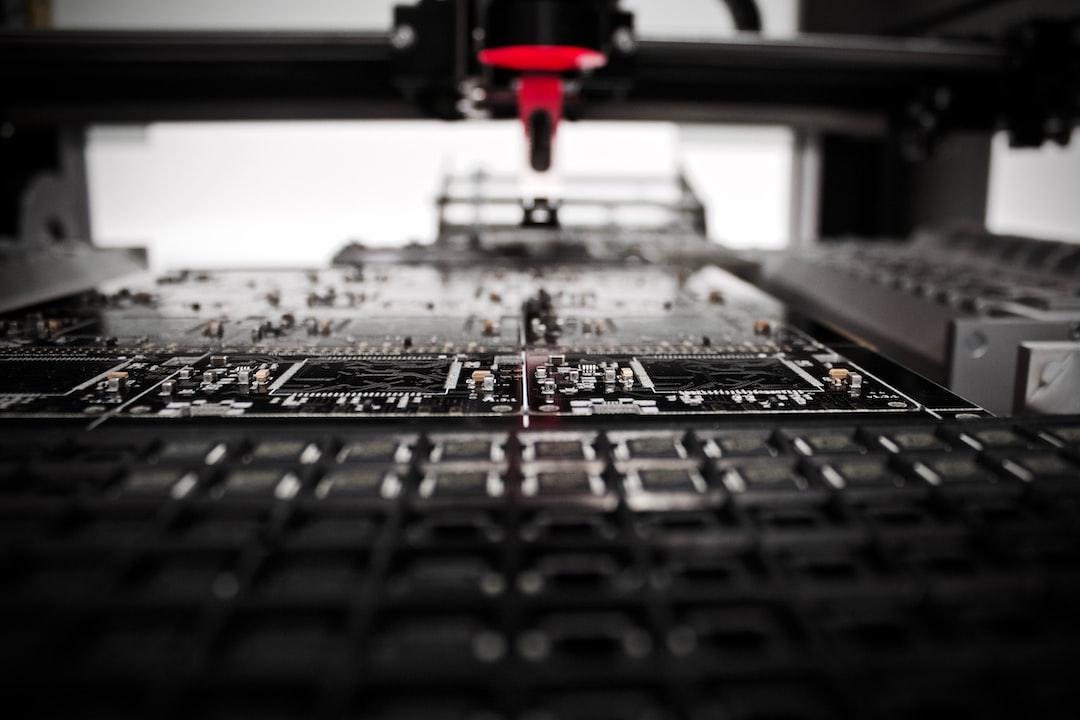The Impact of Internet of Things (IoT) in the Factory of Tomorrow
In today’s fast-paced digital age, the Internet of Things (IoT) has revolutionized various industries, and the manufacturing sector is no exception. The factory of tomorrow is becoming a reality, as manufacturers harness the power of IoT to optimize processes and improve productivity. In this blog post, we will discuss the impact of IoT in the factory of tomorrow and explore the opportunities and challenges it presents.
One of the most significant impacts of IoT in the factory of tomorrow is the concept of a smart factory. IoT enables machines, devices, and sensors to communicate and share information seamlessly. This interconnectivity allows manufacturers to gather real-time, granular data on their production processes. By analyzing this data, manufacturers can identify inefficiencies, bottlenecks, and potential issues, allowing for proactive decision-making and problem-solving.
IoT-powered sensors play a crucial role in the smart factory. These sensors are embedded in machines, products, and even workers’ personal protective equipment. They continuously collect data on parameters such as temperature, humidity, vibration, and productivity. This data is then transmitted to a central system, where it is analyzed using advanced analytics and machine learning algorithms.
The analysis of sensor data provides valuable insights into machine performance and maintenance needs. For example, if a machine’s sensor detects an increase in temperature, it could indicate a potential breakdown. The system can then alert maintenance personnel, who can diagnose and fix the issue before it leads to costly downtime. This predictive maintenance approach not only reduces repair costs but also enhances overall equipment effectiveness.
Another significant impact of IoT in the factory of tomorrow is the integration of robots and autonomous systems. Connected robots equipped with IoT sensors can enhance the efficiency and safety of manufacturing operations. These robots can collaborate with human workers, simplifying complex tasks, increasing production speed, and reducing human error.
IoT also facilitates the concept of just-in-time manufacturing, where products are created based on real-time demand. Sensors monitor inventory levels, customer orders, and production capacities. Based on this data, the system can automatically adjust production schedules, order raw materials, and optimize supply chain logistics. This lean approach minimizes waste, reduces inventory holding costs, and improves customer satisfaction.
The factory of tomorrow driven by IoT also emphasizes worker safety and wellbeing. IoT sensors embedded in personal protective equipment enable real-time monitoring of workers’ health and safety conditions. For example, a wearable sensor can track a worker’s heart rate, body temperature, and exposure to hazardous substances. If any abnormality is detected, an alert can be sent to both the worker and the central control system, enabling swift action to prevent accidents or health issues.
However, implementing IoT in the factory of tomorrow does come with its own set of challenges. One significant concern is data security and privacy. As factories become more connected and data-driven, they become vulnerable to cyber threats. It is crucial for manufacturers to invest in robust security measures, such as encryption, firewalls, and regular system updates, to protect sensitive data from unauthorized access.
Another challenge is the integration of legacy systems with IoT technologies. Many factories still rely on older machines and equipment that lack IoT capabilities. Upgrading or replacing these systems can be expensive and time-consuming. Manufacturers must develop strategies for gradually integrating IoT technologies into their existing infrastructure, ensuring compatibility and minimal disruption to production.
Additionally, there is a need for skilled professionals who understand both manufacturing processes and IoT technologies. This interdisciplinary expertise is essential for successfully implementing and managing IoT-powered systems in factories. Companies should invest in training programs and collaborations with educational institutions to develop a workforce that is equipped to handle the factory of tomorrow.
In conclusion, the impact of IoT in the factory of tomorrow is transformative. It enables the creation of smart factories that optimize processes, enhance productivity, and improve worker safety. The integration of sensors, robots, and autonomous systems, along with real-time data analysis, provides manufacturers with valuable insights for decision-making and problem-solving. While challenges such as security and integration exist, the benefits of IoT in the factory of tomorrow outweigh the risks. Embracing this technology is vital for manufacturers to stay competitive and thrive in the digital era.

